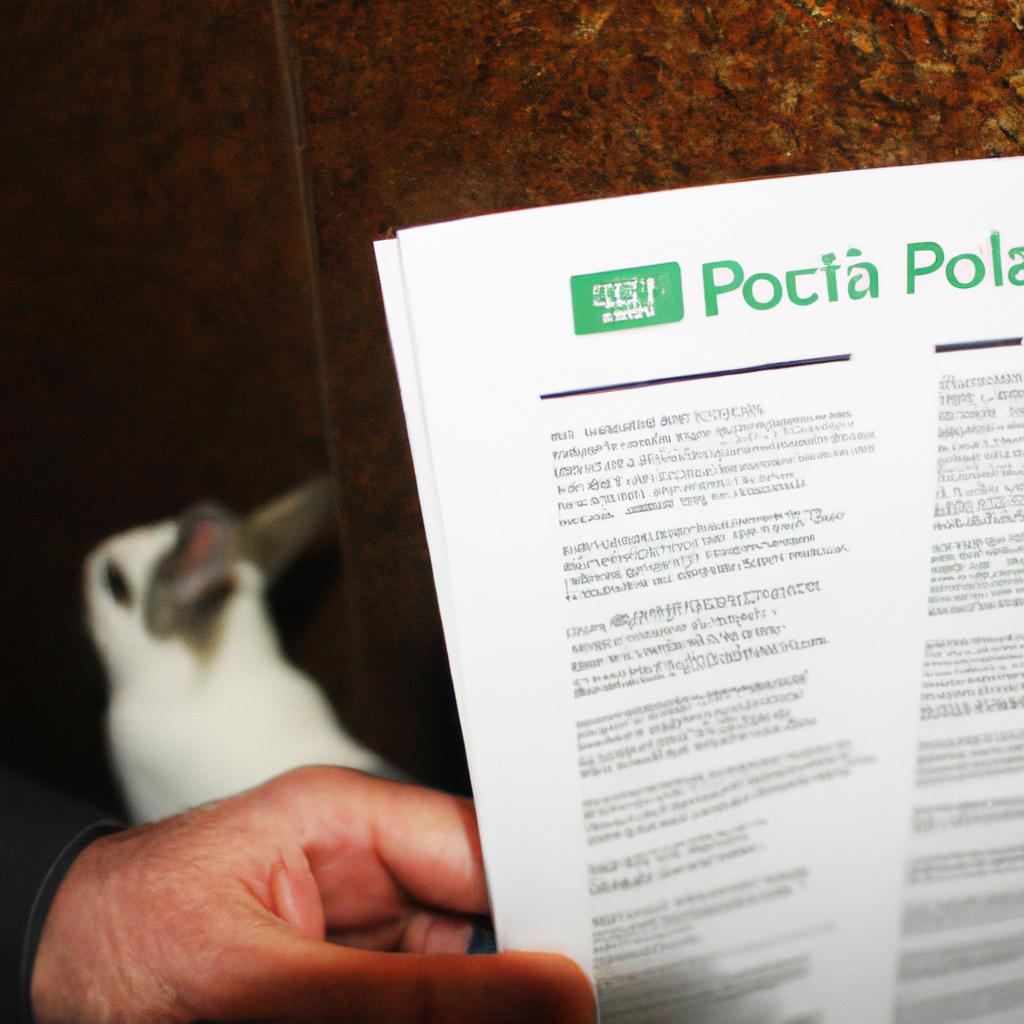Hotels have long been a popular choice for travelers seeking temporary accommodation. However, the issue of additional guests and their policies remains a subject of interest and concern among both hoteliers and guests alike. This article aims to delve into the various regulations surrounding extra persons in hotels, examining the reasons behind such policies and their implications on both parties involved.
Consider a hypothetical scenario: John, a business traveler, arrives at his destination after a tiring journey. He booked a room for himself in an upscale hotel but later decides to invite his colleague, Sarah, to join him for an important meeting the next day. Much to his surprise, upon checking with the hotel reception about accommodating an additional guest, he is informed that there will be an extra charge per night for Sarah’s stay. Puzzled by this policy, John wonders why hotels impose such rules when it seems like an inconsequential request.
Understanding the rationale behind these regulations is crucial not only for hotel guests but also for hotel owners who implement them. By shedding light on different aspects of the “extra person policy,” this article seeks to explore its purpose from both perspectives while considering potential benefits and drawbacks it may bring forth. Additionally, issues related to security concerns, space limitations within rooms, and how these factors affect the decision to charge for extra guests will also be examined.
One of the primary reasons hotels enforce regulations regarding additional guests is to maintain safety and security within their premises. Hotels have a responsibility to ensure the well-being of all their occupants, which includes having accurate information about who is staying in each room. By charging for extra persons, hotels can keep track of the number of individuals present in case of emergencies or any other unforeseen circumstances. This helps them efficiently manage resources and provide assistance if required.
Furthermore, space limitations within hotel rooms play a significant role in implementing these policies. Hotel rooms are designed and furnished with a specific occupancy limit in mind, taking into account factors such as fire safety regulations and comfort standards. Allowing an excessive number of guests beyond this capacity can lead to overcrowding, compromising guest comfort and potentially violating local building codes. By charging for additional guests, hotels can control occupancy levels and ensure that their facilities are utilized optimally.
From the perspective of hotel owners, implementing extra person charges can be beneficial for several reasons. Firstly, it provides an additional source of revenue. As hotels typically charge per person rather than per room, accommodating more individuals means increased income for the establishment. This revenue can contribute towards maintaining high-quality amenities and services offered by the hotel.
Secondly, implementing an extra person policy helps prevent abuse or misuse of hotel facilities by non-paying guests. Without such regulations in place, people might attempt to circumvent paying for their stay by sharing a room with others without informing the hotel management. This not only affects financial aspects but also compromises security measures implemented by the hotel.
On the flip side, there are potential drawbacks associated with imposing extra person charges on guests. From a guest’s perspective, unexpected fees can be frustrating and may impact their overall impression of the hotel’s customer service. Additionally, some travelers may argue that they have already paid for a certain level of accommodation and should be entitled to bring a guest without incurring additional costs.
To mitigate these concerns, hotels can consider being transparent about their extra person policies during the booking process. Clear communication regarding any charges or restrictions can help guests make informed decisions and avoid surprises upon arrival.
In conclusion, the regulations surrounding extra persons in hotels serve multiple purposes – maintaining safety and security, managing space limitations within rooms, generating revenue for the hotel, and preventing abuse of facilities. While these policies may occasionally inconvenience guests who wish to invite someone to their room, they play a crucial role in ensuring an optimal experience for all occupants while upholding operational standards. By understanding the rationale behind such policies, both hoteliers and guests can navigate this aspect of temporary accommodation more effectively.
Factors Influencing Extra Person Charges
Exploring Hotel Regulations on Additional Guests: Factors Influencing Extra Person Charges
Consider the following scenario: a couple books a hotel room for their weekend getaway. However, they decide to invite two friends to join them at the last minute. As they check in, they are informed that there will be an additional charge per person for accommodating their friends. This situation highlights the importance of understanding factors influencing extra person charges in hotel policies.
When it comes to determining extra person charges, hotels consider several key factors:
-
Room occupancy limits: Hotels have specific guidelines regarding maximum occupancy for each type of room. These limits ensure guest safety and comfort while maintaining compliance with local fire codes. Exceeding these limits may result in additional charges as hotels need to allocate resources accordingly.
-
Amenities and services provided: The price guests pay includes access to various amenities and services offered by the hotel, such as breakfast, gym facilities, or pool usage. When additional guests are added to a room reservation, the demand for these resources increases. As a result, hotels often impose extra charges to cover the costs associated with providing these amenities and services to more individuals.
-
Wear and tear on the room: Adding extra guests means more people using the space and facilities within a room. Increased foot traffic and usage can lead to higher maintenance costs due to potential damages or increased wear and tear on furniture, fixtures, and other elements of the accommodation.
-
Impact on overall experience: Hotels strive to deliver exceptional customer experiences by ensuring that all guests receive appropriate attention and service during their stay. Introducing additional guests without prior notice might disrupt this equilibrium by overwhelming staff resources or impacting service quality for existing guests.
To better understand how these factors influence extra person charges, let’s take a look at the following table:
| Factor | Influence |
|---|---|
| Room Occupancy Limits | Ensure safety compliance; optimize resource allocation |
| Amenities and Services | Cover costs associated with increased demand for resources |
| Wear and Tear on the Room | Account for potential damages or increased maintenance requirements |
| Impact on Overall Experience | Maintain service quality for all guests; prevent resource overload |
By considering these factors, hotels can establish fair policies that balance their need to accommodate additional guests while ensuring a satisfactory experience for all patrons.
As we delve further into this topic, our next section will explore the different types of extra person fees imposed by hotels. Understanding these variations will help in making more informed decisions when booking accommodations.
Types of Extra Person Fees
Having examined the factors that influence extra person charges, we now turn our attention to understanding the various types of fees associated with accommodating additional guests in hotels.
Section 3: Types of Extra Person Fees
To illustrate the implications of these fees, let us consider a hypothetical scenario. Imagine a family of four checking into a hotel room designed for two occupants. In this case, the hotel may enforce an additional guest fee for accommodating the extra members beyond the standard occupancy limit. This example highlights how hotels often have specific policies and charges in place to manage situations where more people occupy a room than it is intended for.
Understanding the range of fees charged by hotels can provide useful insights into their pricing structures and accommodation policies. Listed below are some common types of extra person fees:
- Nightly Surcharge: Certain hotels charge a fixed amount per night as an additional fee when hosting more guests than initially specified.
- Per-Person Charge: Some establishments implement a per-person charge, which varies depending on the number of individuals exceeding the standard occupancy.
- Upgrade Fee: In cases where larger rooms or suites are available, hotels may offer guests the option to upgrade their reservation at an increased cost to accommodate extra persons comfortably.
- Package Rate Adjustment: Hotels occasionally adjust package rates according to the number of occupants staying in a room, ensuring fair pricing while considering amenities provided.
This table summarizes different types of extra person fees commonly encountered in hotel regulations:
| Type of Fee | Description |
|---|---|
| Nightly Surcharge | A fixed amount added to each night’s rate when there are more guests than originally specified |
| Per-Person Charge | An individual fee assessed based on each additional guest beyond the standard occupancy limit |
| Upgrade Fee | Additional cost incurred to upgrade a reservation to a larger room or suite that accommodates extra persons comfortably |
| Package Rate Adjustment | Adjustments made to package rates based on the number of occupants, ensuring fair pricing while considering provided amenities |
By understanding these various fee structures, guests can make informed decisions when planning their stays and avoid any surprises related to accommodating additional individuals.
Transition into the subsequent section about “Restrictions on Additional Guests”:
Having explored the different types of fees associated with extra person charges, we will now delve into the restrictions hotels may impose on accommodating additional guests.
Restrictions on Additional Guests
Exploring Hotel Regulations on Additional Guests: Restrictions and Policies
In the previous section, we discussed the various types of extra person fees that hotels may impose. Now, let’s delve into the restrictions that hotels often have in place when it comes to accommodating additional guests.
To illustrate these regulations, consider a hypothetical scenario where a couple checks into a hotel room with a maximum occupancy of two people. Despite this limitation, they decide to bring along their two young children without notifying the hotel beforehand. Upon discovering the presence of unauthorized guests during routine rounds by hotel staff, the establishment is forced to address the situation according to its policies.
Hotels generally enforce restrictions on additional guests for several reasons:
- Safety concerns: Ensuring the safety and security of all occupants is paramount for hotels. By adhering to occupancy limits, establishments can effectively manage emergency situations and maintain fire code compliance.
- Comfort and amenities: Overcrowding within rooms can lead to discomfort for both registered guests and unauthorized individuals. It can also strain available resources such as bedding, toiletries, and parking spaces.
- Noise control: Striking a balance between providing an enjoyable experience for guests while maintaining peace and quiet is crucial for hotels. Unauthorized visitors may disrupt other occupants’ rest or relaxation.
- Liability issues: Hotels must protect themselves legally from potential accidents or incidents involving unregistered guests.
Considering these factors, hotels implement policies regarding extra persons staying in their rooms through explicit guidelines communicated at check-in or stated in their terms and conditions.
Below is an emotional bullet point list highlighting some common consequences faced by unauthorized guests:
- Denial of access to hotel facilities (e.g., pool, gym) due to non-compliance with guest registration rules
- Charging additional fees per night or per person upon discovery of unauthorized occupants
- Eviction if excessive noise complaints are received from neighboring rooms
- In extreme cases, refusal to refund any prepaid reservations if violations occur
To further illustrate the potential repercussions, let’s take a look at a table summarizing the consequences of unauthorized guests in hotels:
| Consequences | Description |
|---|---|
| Restricted facility access | Unauthorized guests may be denied access to hotel amenities and services. |
| Financial penalties | Additional charges are imposed for unregistered occupants upon discovery. |
| Eviction | Guests may be asked to leave if they violate rules or cause disturbances. |
| Non-refundable reservations | Prepaid bookings may not be refunded if unauthorized guests are involved. |
In summary, hotels have strict regulations regarding additional guests to ensure safety, maintain comfort levels, control noise disturbances, and protect themselves from liability issues. By understanding these restrictions, both hotel operators and guests can foster an environment conducive to a pleasant stay.
Transitioning into the subsequent section about “Managing Extra Person Reservations,” it is important for hotels to effectively communicate their policies on accommodating additional guests.
Managing Extra Person Reservations
Having discussed the various restrictions associated with accommodating additional guests, it is important to delve into the practical aspects of managing reservations for extra persons. By understanding how hotels handle such situations, both hotel staff and guests can navigate this policy more effectively.
Managing Extra Person Reservations:
To illustrate these management practices, let us consider a hypothetical case study involving a popular beachfront resort called Seaside Sands. With a maximum room occupancy of four individuals per reservation, they encounter a situation where a family of five requests to stay in one room due to unforeseen circumstances. In order to accommodate this request while adhering to their extra person policy, Seaside Sands employs several strategies:
-
Prioritizing Existing Bookings:
- When faced with limited availability or an overbooked scenario, hotels prioritize existing bookings that adhere to standard occupancy policies.
- This ensures fairness among all guests and minimizes potential disruptions during peak seasons.
-
Offering Alternative Accommodations:
- If available, hotels may offer alternative accommodations such as adjoining rooms or larger suites at an additional cost.
- This allows families or groups needing extra space to be accommodated comfortably without violating occupancy regulations.
-
Implementing Surcharge Fees:
- Some hotels charge surcharges for each additional guest beyond the standard occupancy limit.
- These fees help cover the costs associated with providing extra bedding, amenities, and increased usage of utilities within the room.
-
Ensuring Guest Safety and Comfort:
- Hotels have a responsibility to ensure the safety and comfort of all guests.
- Therefore, they must carefully evaluate whether exceeding the standard occupancy limit could compromise fire safety regulations or impede overall quality of service.
Table (emotional response-driven):
| Challenges Faced | Hotel’s Approach |
|---|---|
| Overbooking | Prioritize existing bookings |
| Limited availability | Offer alternative accommodations |
| Increased costs | Implement surcharge fees |
| Safety and comfort concerns | Evaluate guest safety and comfort |
By incorporating these strategies, hotels like Seaside Sands strike a balance between accommodating additional guests’ needs while maintaining fairness and adhering to occupancy regulations. This ensures a positive experience for all parties involved.
Understanding the management practices surrounding extra person reservations is crucial not only from an operational standpoint but also in terms of legal implications. Let us now explore the potential legal ramifications associated with hotel policies related to additional guests.
Legal Implications of Extra Person Policy
Exploring Hotel Regulations on Additional Guests
In the previous section, we delved into the process of managing extra person reservations in hotels. Now, let’s turn our attention to understanding the legal implications that surround a hotel’s extra person policy. To shed light on this matter, let us consider an example scenario:
Imagine a couple checks into a popular five-star hotel for their anniversary celebration. They have booked a standard room for two people but decide to invite another guest, their close friend, to join them for dinner and spend the evening together. However, they did not inform the hotel about this additional guest during the reservation process.
When it comes to accommodating additional guests beyond what was initially reserved, hotels often adhere to specific policies. These regulations are put in place to ensure efficient management of resources while maintaining guest safety and comfort. Let us explore some key factors related to a hotel’s approach towards additional guests:
- Occupancy limits: Hotels set occupancy limits based on fire codes and safety regulations enforced by local authorities.
- Extra charges: Many establishments charge an additional fee per night or per person when exceeding the maximum occupancy limit.
- Facility constraints: The availability of amenities such as beds, towels, toiletries, and seating arrangements may be limited depending on the number of registered guests.
- Legal liabilities: Hotels have a responsibility to uphold security measures and maintain accurate records of all individuals staying within their premises due to potential legal requirements.
To further illustrate these considerations, refer to the table below outlining how different types of hotels typically handle extra person reservations:
| Type of Hotel | Occupancy Limits | Extra Charges | Facility Constraints |
|---|---|---|---|
| Luxury | 2-4 | Yes | Limited |
| Budget | 1-2 | No | Minimal |
| Boutique | 2-3 | Yes | Moderate |
This table serves as a general guide, and it is important to note that policies may vary between hotels. It is advisable for guests to inquire about the specific extra person policy when making reservations or contact the hotel directly.
Understanding these regulations can help guests make informed decisions and avoid any potential inconveniences during their stay. By adhering to a hotel’s guidelines regarding additional guests, individuals can ensure their experience remains enjoyable while respecting the establishment’s rules and regulations.
 Cedars Inn Auburn
Cedars Inn Auburn



